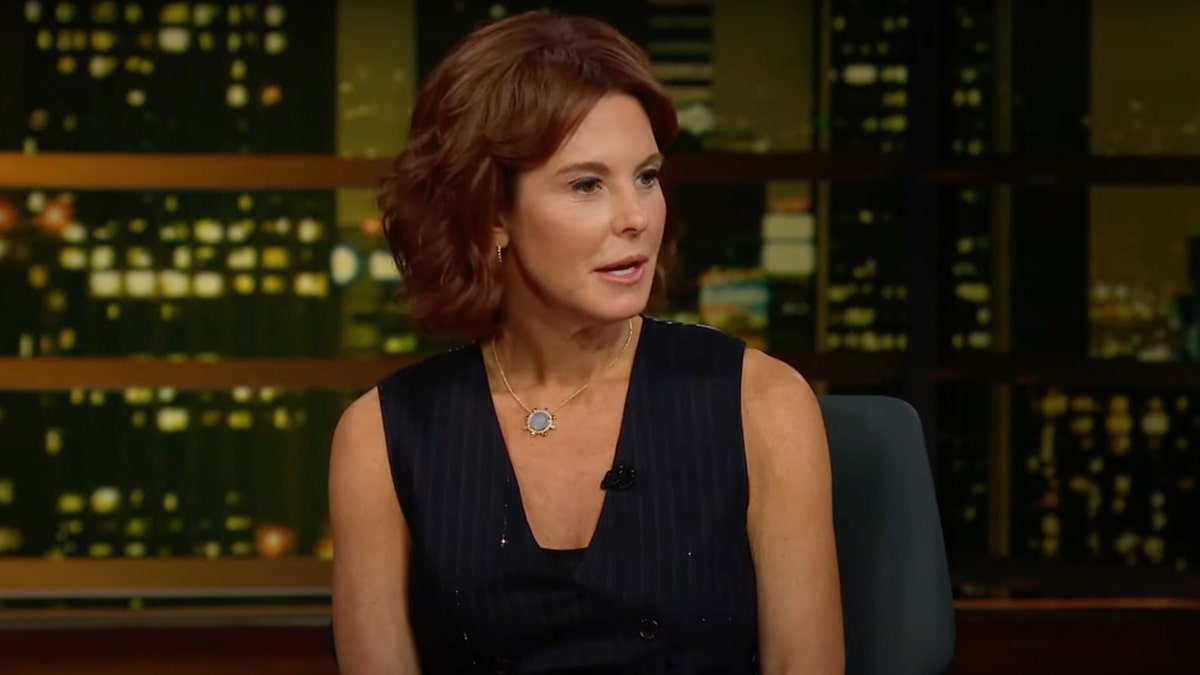What Disease Does Stephanie Ruhle Have? Unveiling The Truth Behind Her Health Journey
Stephanie Ruhle, the renowned CNN anchor, has been making headlines not just for her impressive journalism but also for her personal health journey. If you’ve ever wondered, “What disease does Stephanie Ruhle have?” you’re not alone. Fans and followers alike are curious about her condition and how she manages it while maintaining such a high-profile career. Let’s dive into the details and uncover the truth behind her health story. So, buckle up, because this is going to be an eye-opening ride!
Stephanie Ruhle is more than just a face on your TV screen; she’s a powerhouse in the world of journalism. But beyond her professional achievements, there’s another side to her story—one that involves a health challenge she’s been bravely facing. This article will take you through her journey, the disease she battles, and how she continues to inspire millions around the globe.
Before we get into the nitty-gritty, let’s clear the air. Stephanie Ruhle’s condition is something that affects many people worldwide, and understanding it can help us appreciate her resilience even more. So, whether you’re a fan of her work or simply curious about her health, this article is here to provide clarity and insight. Let’s get started!
Read also:Cristin Milioti The Rising Star Who Stole Our Hearts
Biography of Stephanie Ruhle: The Woman Behind the Screen
Before we delve into Stephanie Ruhle’s health journey, it’s essential to know who she is and what makes her such a remarkable figure in the world of journalism. Stephanie Ruhle is an award-winning journalist and anchor for CNN, where she hosts "CNN Newsroom" and "Stephanie Ruhle." She has earned a reputation for her sharp interviews and in-depth analysis of global events.
But what about her personal life? Born on October 14, 1972, in Philadelphia, Pennsylvania, Stephanie grew up in a family that valued education and hard work. Her career in journalism began in the early 2000s, and since then, she’s climbed the ranks to become one of the most respected voices in the industry.
Data and Facts About Stephanie Ruhle
Here’s a quick look at some key facts about Stephanie Ruhle:
| Full Name | Stephanie Ruhle |
|---|---|
| Date of Birth | October 14, 1972 |
| Place of Birth | Philadelphia, Pennsylvania |
| Profession | Journalist, Anchor |
| Employer | CNN |
Now that we’ve covered the basics, let’s move on to the main question: What disease does Stephanie Ruhle have?
What Disease Does Stephanie Ruhle Have? Unveiling the Diagnosis
Stephanie Ruhle has been open about her battle with thyroid cancer. In 2015, she was diagnosed with papillary thyroid cancer, a condition that affects thousands of people each year. Despite the shock of the diagnosis, Stephanie approached her treatment with the same determination and grit that she brings to her journalism.
Papillary thyroid cancer is one of the most common types of thyroid cancer and is often treatable with early detection and proper medical care. Stephanie underwent surgery to remove her thyroid gland and has since been managing her condition with hormone replacement therapy. Her journey is a testament to the importance of regular check-ups and early intervention.
Read also:Emilio Valli The Life Legacy And Influence Of A True Icon
Symptoms of Thyroid Cancer: What to Look For
So, what are the symptoms of thyroid cancer, and how can you spot them early? Here’s a quick rundown:
- A lump or swelling in the neck
- Persistent hoarseness or voice changes
- Difficulty swallowing or breathing
- Neck pain that doesn’t go away
While these symptoms can also be caused by less serious conditions, it’s always a good idea to consult a healthcare professional if you notice any of them. Early detection can make a huge difference in treatment outcomes.
Stephanie Ruhle’s Battle: A Timeline of Her Journey
Stephanie Ruhle’s journey with thyroid cancer began in 2015 when she noticed a lump in her neck. After a series of tests, she was diagnosed with papillary thyroid cancer. Here’s a brief timeline of her journey:
- 2015: Diagnosis and surgery to remove the thyroid gland
- 2016: Beginning hormone replacement therapy
- 2017-Present: Continued monitoring and management of her condition
Throughout her journey, Stephanie has remained open about her experience, using her platform to raise awareness about thyroid cancer and the importance of early detection.
How Stephanie Ruhle Manages Her Condition
Managing thyroid cancer involves more than just surgery and hormone therapy. Stephanie has adopted a holistic approach to her health, incorporating regular check-ups, a balanced diet, and stress management techniques into her daily routine. She’s also a strong advocate for mental health, recognizing the emotional toll that a cancer diagnosis can take.
Thyroid Cancer: Understanding the Basics
Thyroid cancer is a condition that affects the thyroid gland, a butterfly-shaped organ located in the neck. The thyroid gland produces hormones that regulate metabolism, heart rate, and other vital functions. There are several types of thyroid cancer, with papillary thyroid cancer being the most common.
While the exact cause of thyroid cancer is unknown, certain risk factors can increase your chances of developing the disease. These include:
- A family history of thyroid cancer
- Exposure to radiation
- Being female
- Age (most cases occur in people over 40)
Despite these risk factors, many people with thyroid cancer have no known risk factors at all. That’s why regular check-ups and screenings are so important.
Treatment Options for Thyroid Cancer
Treatment for thyroid cancer typically involves a combination of surgery, hormone therapy, and sometimes radiation therapy. The exact treatment plan depends on the type and stage of the cancer, as well as the patient’s overall health.
Surgery to remove the thyroid gland is often the first step in treatment. After surgery, patients may need to take hormone replacement therapy to compensate for the loss of thyroid hormones. In some cases, radioactive iodine therapy may be used to destroy any remaining thyroid tissue.
Stephanie Ruhle’s Influence: Inspiring Others Through Her Journey
Stephanie Ruhle’s openness about her health journey has inspired countless people around the world. By sharing her story, she’s helping to break down the stigma surrounding cancer and encouraging others to seek help when needed.
Her influence extends beyond her personal journey. As a journalist, Stephanie uses her platform to highlight important health issues and advocate for better access to healthcare. She’s a true role model for anyone facing a health challenge, proving that you can overcome adversity and continue to thrive in your career and personal life.
The Importance of Early Detection
Early detection is key to successful treatment of thyroid cancer. Stephanie’s experience highlights the importance of regular check-ups and screenings, especially if you have any risk factors for the disease. Don’t wait for symptoms to appear—be proactive about your health and get checked regularly.
Living with Thyroid Cancer: Tips for Managing Your Condition
If you or someone you know has been diagnosed with thyroid cancer, here are some tips for managing the condition:
- Follow your treatment plan closely
- Attend all scheduled appointments with your healthcare provider
- Maintain a healthy diet and exercise regularly
- Practice stress management techniques, such as meditation or yoga
- Join a support group to connect with others who understand what you’re going through
Remember, you’re not alone in this journey. There are countless resources and support systems available to help you manage your condition and live a fulfilling life.
Stephanie Ruhle’s Advice for Those Facing a Diagnosis
Stephanie Ruhle has shared some valuable advice for those facing a thyroid cancer diagnosis. Her top tips include:
- Stay informed about your condition and treatment options
- Lean on your support network of family and friends
- Don’t be afraid to ask for help when you need it
- Focus on what you can control and let go of what you can’t
Her words of wisdom serve as a reminder that strength comes in many forms, and sometimes the bravest thing you can do is ask for help.
Conclusion: What We’ve Learned About Stephanie Ruhle’s Health Journey
So, what disease does Stephanie Ruhle have? The answer is papillary thyroid cancer, a condition she’s been bravely battling since 2015. Through her journey, Stephanie has shown us the power of resilience, determination, and the importance of early detection.
Her story is a reminder that even the strongest among us can face health challenges, but with the right support and mindset, we can overcome anything. If you’ve been inspired by Stephanie’s journey, don’t hesitate to take action. Get regular check-ups, educate yourself about health issues, and don’t be afraid to speak up if you notice any changes in your body.
And remember, sharing is caring! If you found this article helpful, feel free to share it with your friends and family. Who knows? You might just inspire someone else to take charge of their health today!
Table of Contents
- Biography of Stephanie Ruhle: The Woman Behind the Screen
- What Disease Does Stephanie Ruhle Have? Unveiling the Diagnosis
- Stephanie Ruhle’s Battle: A Timeline of Her Journey
- Thyroid Cancer: Understanding the Basics
- Stephanie Ruhle’s Influence: Inspiring Others Through Her Journey
- Living with Thyroid Cancer: Tips for Managing Your Condition
Article Recommendations


